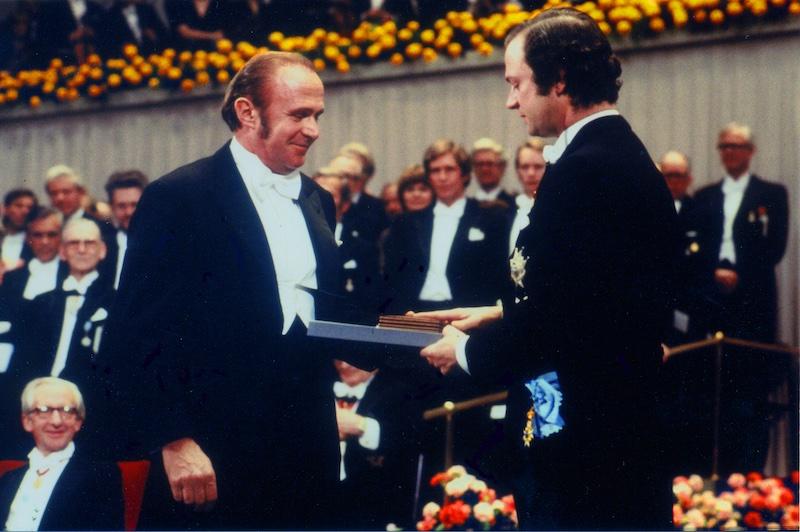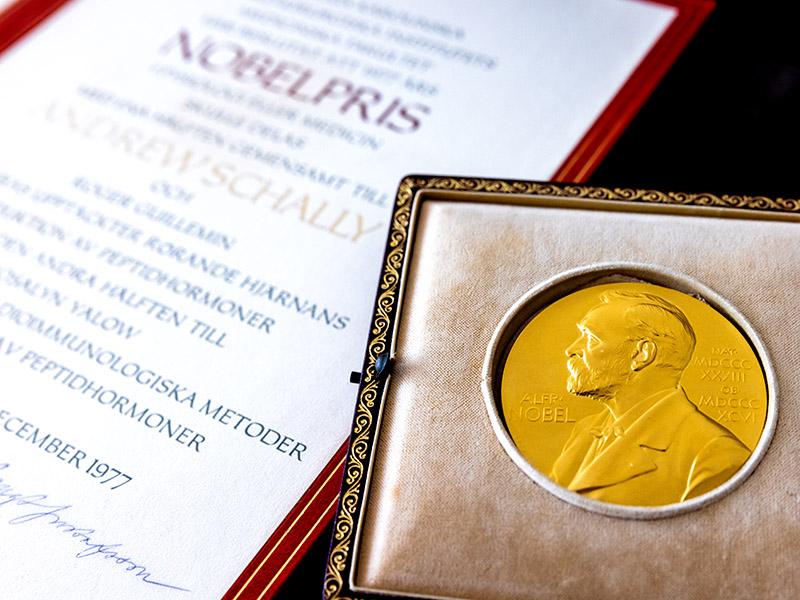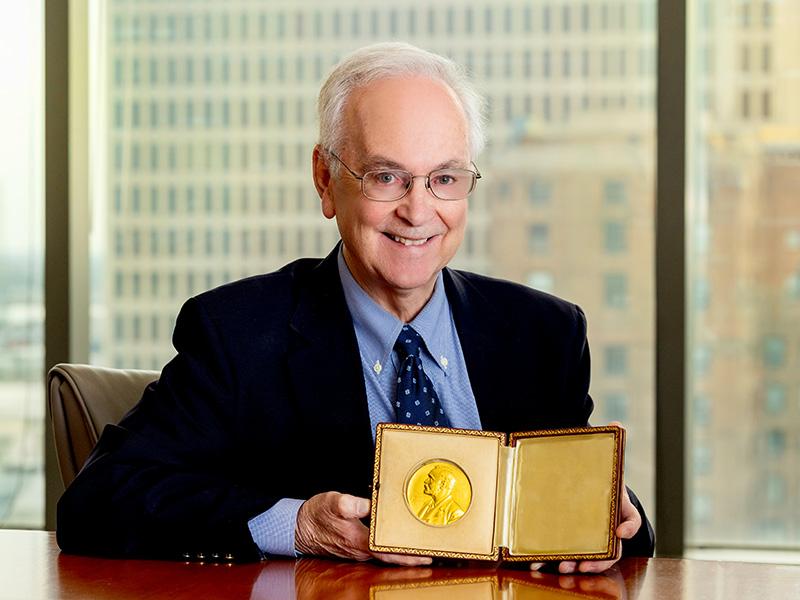The gold standard: Nobel Prize gifted to Tulane University by Dr. Andrew Schally
Forty-seven years after endocrinologist Dr. Andrew Schally was awarded the Nobel Prize for medical research conducted at Tulane University, the prestigious award is returning home.
A researcher at Tulane and the New Orleans VA Medical Center from 1962-2005, Schally donated his Nobel Prize to Tulane University School of Medicine, where it will soon be put on display to inspire the next generation of researchers to reach for similar heights.
Schally shared the 1977 Nobel Prize in Physiology or Medicine for identifying the presence of key peptides in the hypothalamus that control pituitary hormone secretion and successfully synthesizing them in work conducted at Tulane and the New Orleans VA. After receiving the award, his continued research led to the development of what is now the preferred treatment method for advanced prostate cancer in addition to groundbreaking discoveries in contraception, diabetes and depression.
“Through a bold, unrelenting and lifelong pursuit of discovery and innovation Dr. Schally has improved lives around the globe and represented the very best of Tulane,” President Michael A. Fitts said. “The return to Tulane of his Nobel Prize, the world’s most prestigious recognition of scientific achievement, recalls the university’s storied history of breakthroughs and discoveries while highlighting the unprecedented surge in research currently underway at Tulane.”
“Dr. Schally conducted such significant research that’s translated to patient care across so many fields,” said Dr. Lee Hamm, senior vice president and dean of Tulane University School of Medicine. “We are honored by his loyalty, allegiance and fondness for Tulane, and this award is coming to Tulane at a time when we’re having such a phenomenal movement in research. We intend to continue that momentum.”
Former Tulane University oncologist Dr. Oliver Sartor, a longtime friend of Schally’s, helped facilitate the donation.
The 200-gram gold medal sits in a plush leather-clad case and will be displayed in the School of Medicine for faculty, staff and students to admire.
“It’s my hope that this is an inspiration for Tulane investigators and students and proof that if you work hard, persevere and apply your skills, you can do tremendous good and achieve great things here,” Hamm said.
In a statement, Schally said his hope is that the award will remind students what can be achieved through hard work and scientific curiosity. Schally’s son Dr. Gordon Schally, a Tulane alumnus, said he is “thrilled the medal will be permanently displayed in my hometown” and that its presence “further demonstrates Tulane’s and the VA’s position as world leaders in the international research community.”
Schally, who lives in Miami, last visited the medical school in 2015 when he presented grand rounds and met with students and faculty. When asked what makes a successful medical investigator, Schally told students his drive and curiosity were keys to his success. The other key? “I don’t deviate,” he said.
“You must find your target,” Schally said at the time. “Once you get it, don’t deviate. I have a one-track mind. Or that’s what people tell me.”
Schally’s Nobel Prize symbolizes odds that can be overcome in more ways than one. As a 13-year-old, Schally fled Poland in 1939 as World War II began, eventually moving to Canada and then the United States where he established his distinguished career.
Dr. Anand Irimpen, professor of medicine at Tulane and chief cardiologist at the New Orleans VA Medical Center, worked closely with Schally in the early 2000s and recalled the work ethic Schally both exhibited and instilled in those who worked with him.
“To have his Nobel Prize here, so many people are excited for it to be displayed, and anyone who sees it will realize they are at a spectacular school,” Irimpen said. “Hopefully it inspires students to follow in his footsteps and achieve their own Nobel Prizes in the future.”



